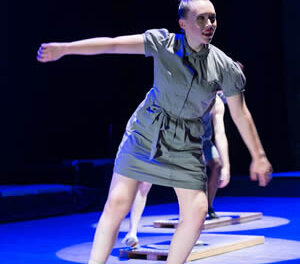November’s Classical Series concerts of the Winston-Salem Symphony featured the superb horn player, David Jolley, in the second horn concerto by one of the 20th century’s greatest composers, Richard Strauss. Paradoxical perhaps, but even the greatest composers produce works of uneven quality; most of this one was like riding through an uneventful landscape. That late in life Strauss would even write a second horn concerto, however, has guaranteed it a place in the repertory. Jolley is one of the world’s top horn players, and the enthusiasm the audience exhibited was certainly merited. One of the high points of the performance (heard in the Stevens Center on November 22) occurred in the third movement when, accompanied by the horns and trumpets in the orchestra, Jolley played a triumphant hunting volley. The strings of the orchestra negotiated the tricky and difficult passages of that same movement with skill and agility. Maestro Robert Moody, at the helm of the orchestra, was an attentive and effective accompanist.
The concert opened with a kitschy attempt to meld the steely opening of R. Strauss’s Thus Spake Zarathustra with J. Strauss’s liquid “Blue Danube Waltz,” perhaps intended to justify the title of the concert, 2005: A Strauss Odyssey in terms of Stanley Kubrick’s 1968 classic film, 2001: A Space Odyssey, which has made the first minute of R. Strauss’s Zarathustra forever famous. This was followed by an elegant, if not always precise, performance of Johann Strauss, Jr.’s Overture to Die Fledermaus.
After intermission, we were treated to another work by the waltz king, J. Strauss, Jr.’s “Emperor Waltz.” Again the orchestra was elegant under the direction of the new Maestro although not terribly subtle in the attempt to play the anticipated, accented second beats one hears from some (but by no means all) Viennese orchestras.
We had to wait until the end of the concert to hear the entire orchestra in all its glory; and glorious it was! One of R. Strauss’s most successful operas is Der Rosenkavalier, a charming story of intrigue and romance, set in 18th-century Vienna. In this orchestral suite, drawn from the opera, Strauss is at his orchestral best. Lush strings, bold brass, wistful winds, and colorful celesta and harps all combine to produce one of the most endearingly sensuous musical creations in the repertoire. If one were to find any fault at all in this excellent performance, it might be that the trumpets and trombones, perched high above the orchestra on their long-awaited risers, tended to dominate all the loud passages. Time will surely temper this small excess.
Mary Starling Concerts for School Children
I had the occasion, earlier in the same week [11/16], to attend the closing concert in the Mary Starling Concert Series that the Winston-Salem Symphony plays for fifth and sixth graders of the region.
Every orchestra in the U.S. is aware of the threat that the sports and entertainment “industry” poses to the very survival of live acoustical music. To help encourage children to participate in orchestras and bands in middle and high school, symphony orchestras have for years performed a community service by programming special concerts for children. Forsyth County is fortunate in that over 30% of all middle-schoolers and about 25% of all high-schoolers take band, orchestra, or chorus for credit! This is a testament to the support the School Board and Superintendent Donald Martin have paid to all the arts.
In a concert titled “North America, the Beautiful,” Maestro Moody proved to be a skilled and entertaining presenter as well as a creative programmer. A side-by-side performance of Variations on “America” by the iconoclastic American composer Charles Ives (orchestrated by William Schuman) featured members of the Winston-Salem Youth Symphony playing many of the principal parts.
Another feature of these concerts for many years has been the inclusion of young soloists playing concertos from the standard repertory. This year, Eliana Fishbeyn (9) played the first movement of Mozart’s Piano Concerto 19 in F, and the previous day, Yeeren Low (8) had wowed orchestra and audience alike in his rendition of the last movement of Beethoven’s First Piano Concerto in C. Both were winners of the Winston-Salem Symphony’s annual Youth Talent Search. which has been in existence for over 20 years.
Other works performed on these concerts included one by Canadian composer Glen Buhr and another by Mexican composer Arturo Marquez.












